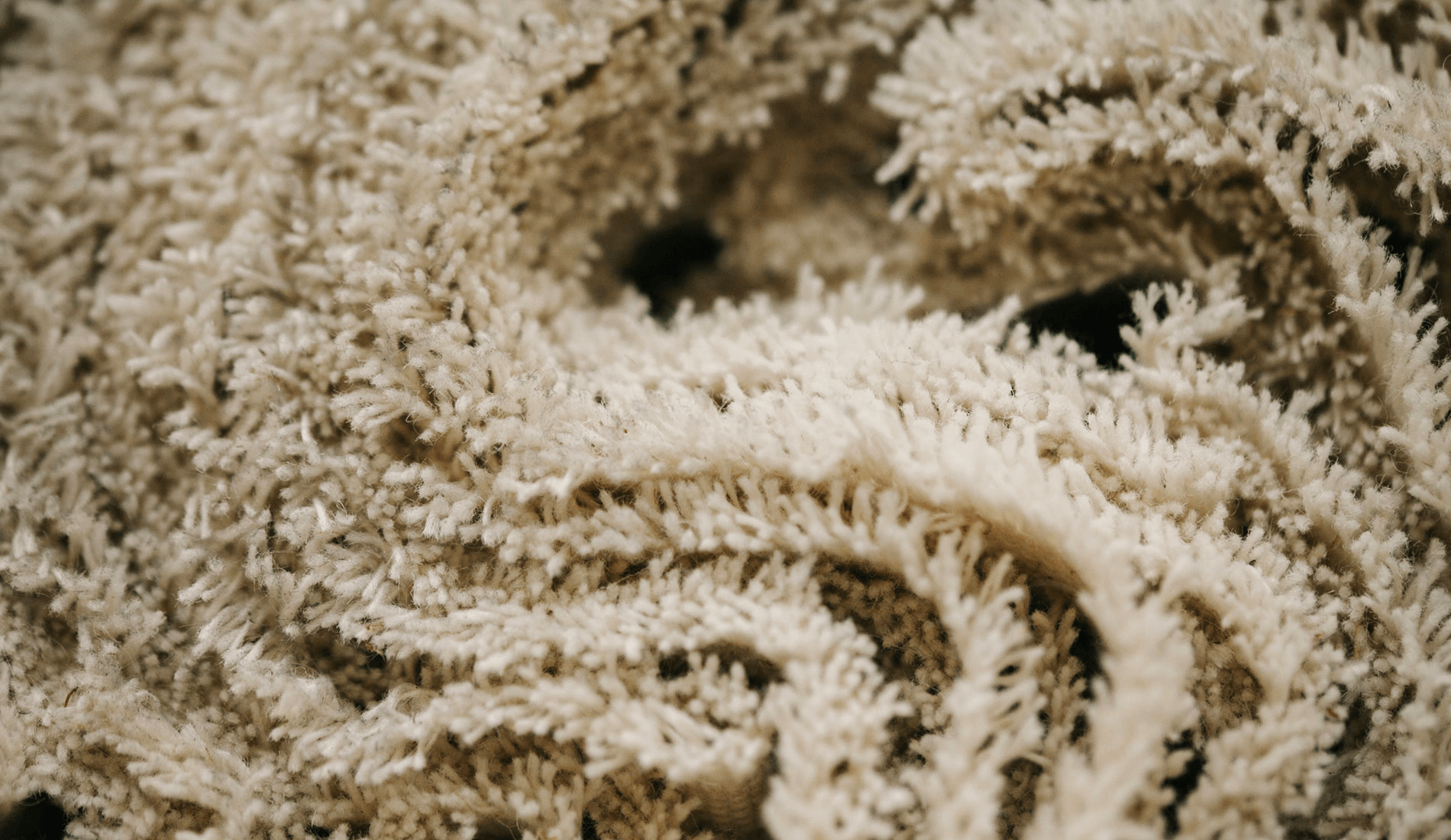
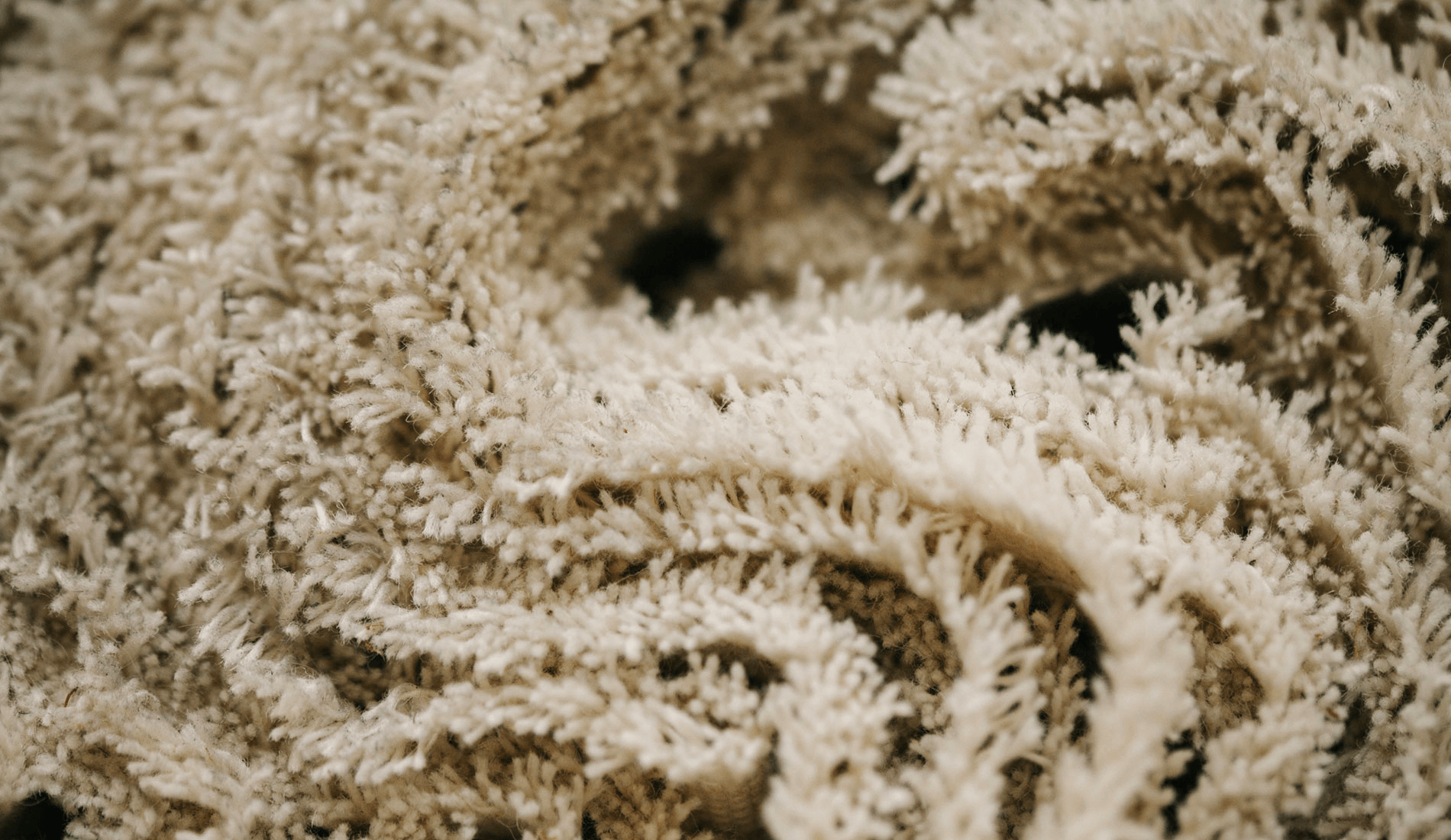
Fibres & Fabrics
Fabric Switch: Sourcing Sustainable Wool
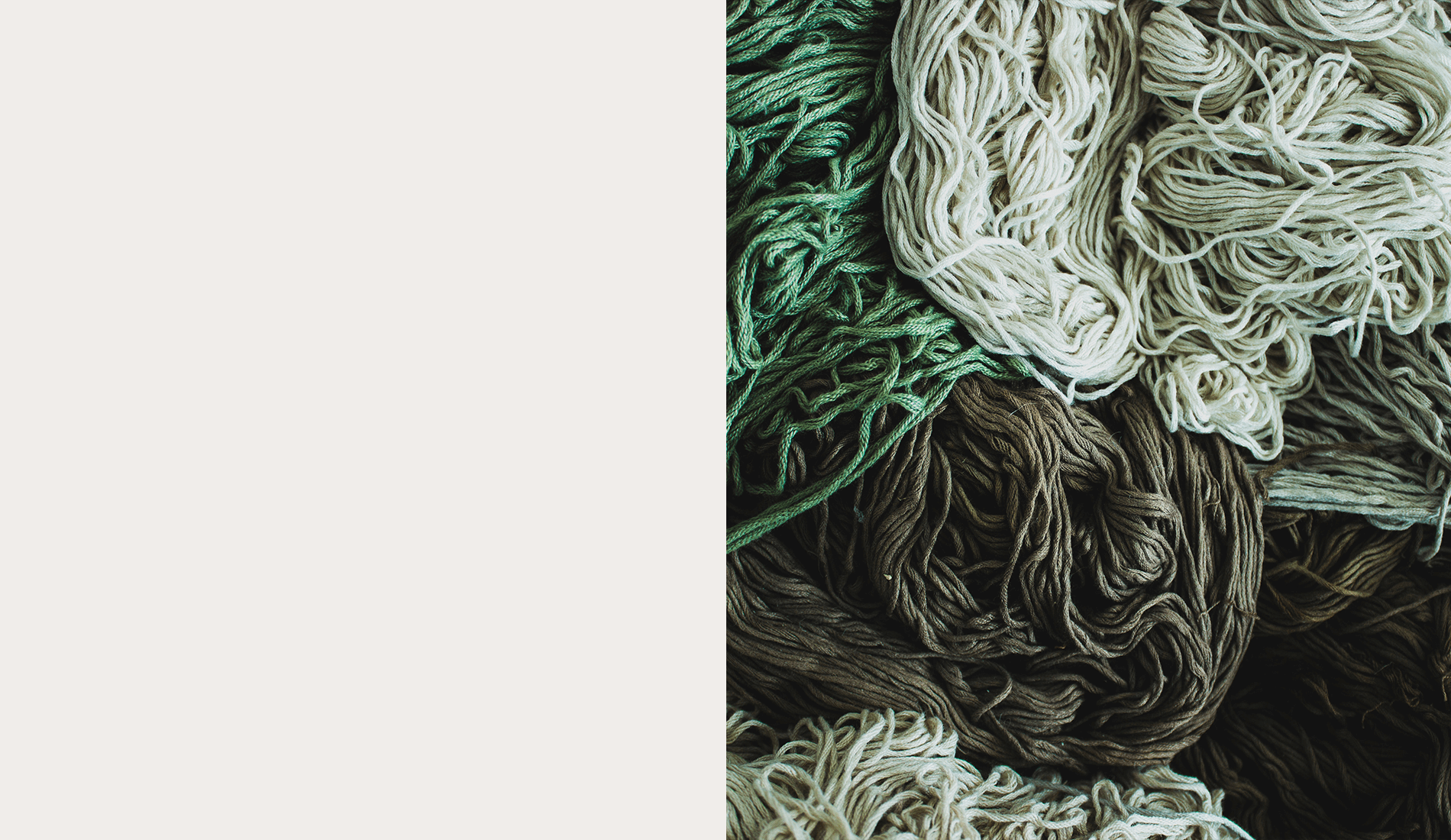
Introduction
Naturally hard-wearing and long-lasting, wool now only makes up 1% of all fibres used in garment production.
The wool industry, headed by Australia and China, produces around 1,160 million kilograms of clean wool per year
Read CO's full fibre briefing on wool for more details on production and impact.
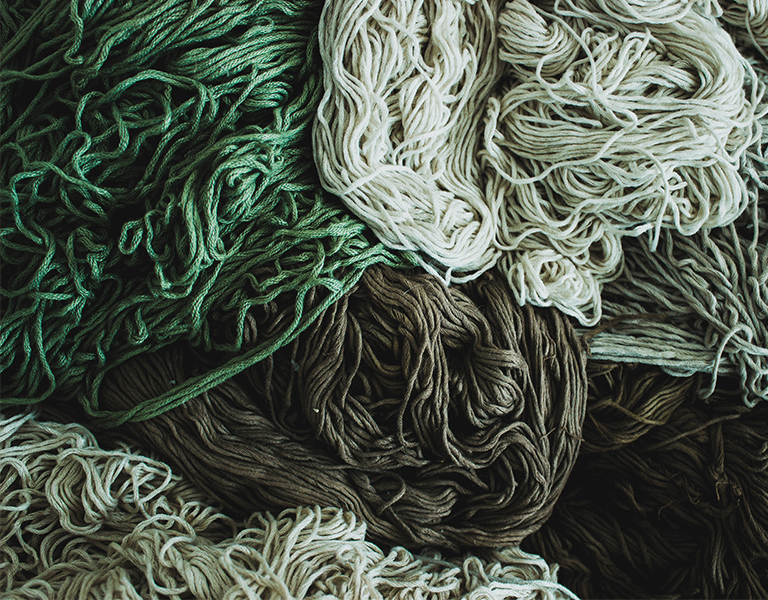
Introduction
Naturally hard-wearing and long-lasting, wool now only makes up 1% of all fibres used in garment production.
The wool industry, headed by Australia and China, produces around 1,160 million kilograms of clean wool per year
Read CO's full fibre briefing on wool for more details on production and impact.
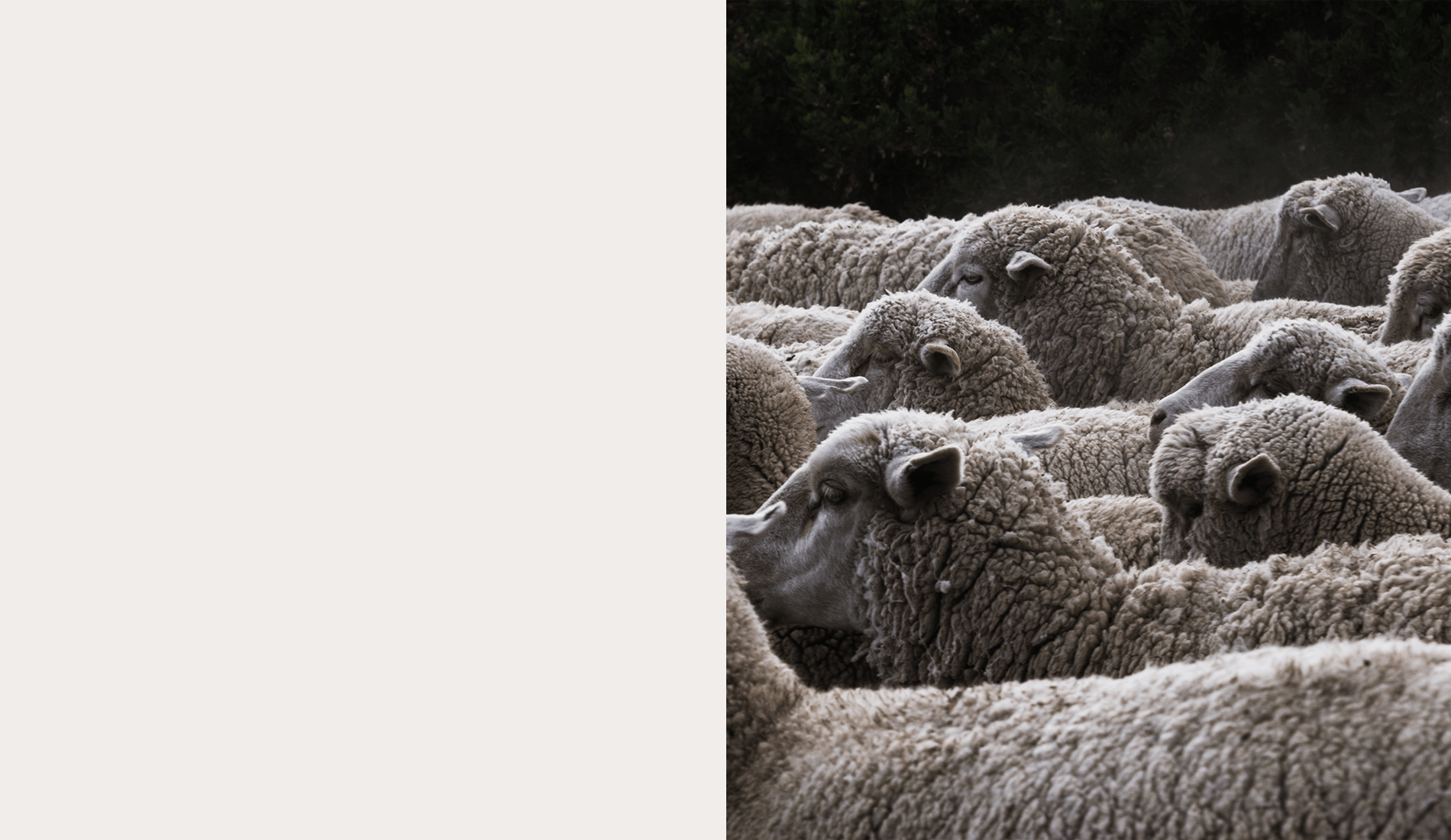
Key sustainability issues
Wool’s environmental impact is mixed due to land use, water pollution and global warming issues.
Over a lifecycle, it fares better thanks to its high recycling rates.
Animal welfare issues include managing the health of sheep and poor treatment in sheering sheds.
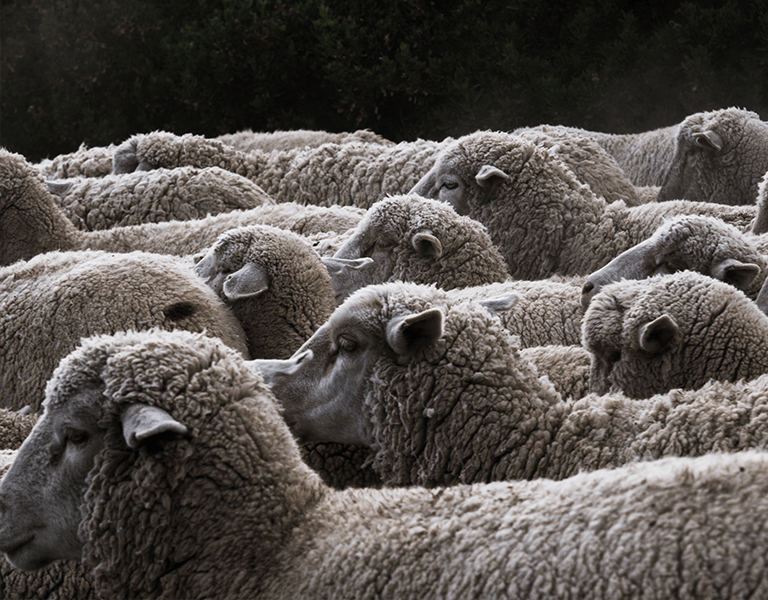
Key sustainability issues
Wool’s environmental impact is mixed due to land use, water pollution and global warming issues.
Over a lifecycle, it fares better thanks to its high recycling rates.
Animal welfare issues include managing the health of sheep and poor treatment in sheering sheds.
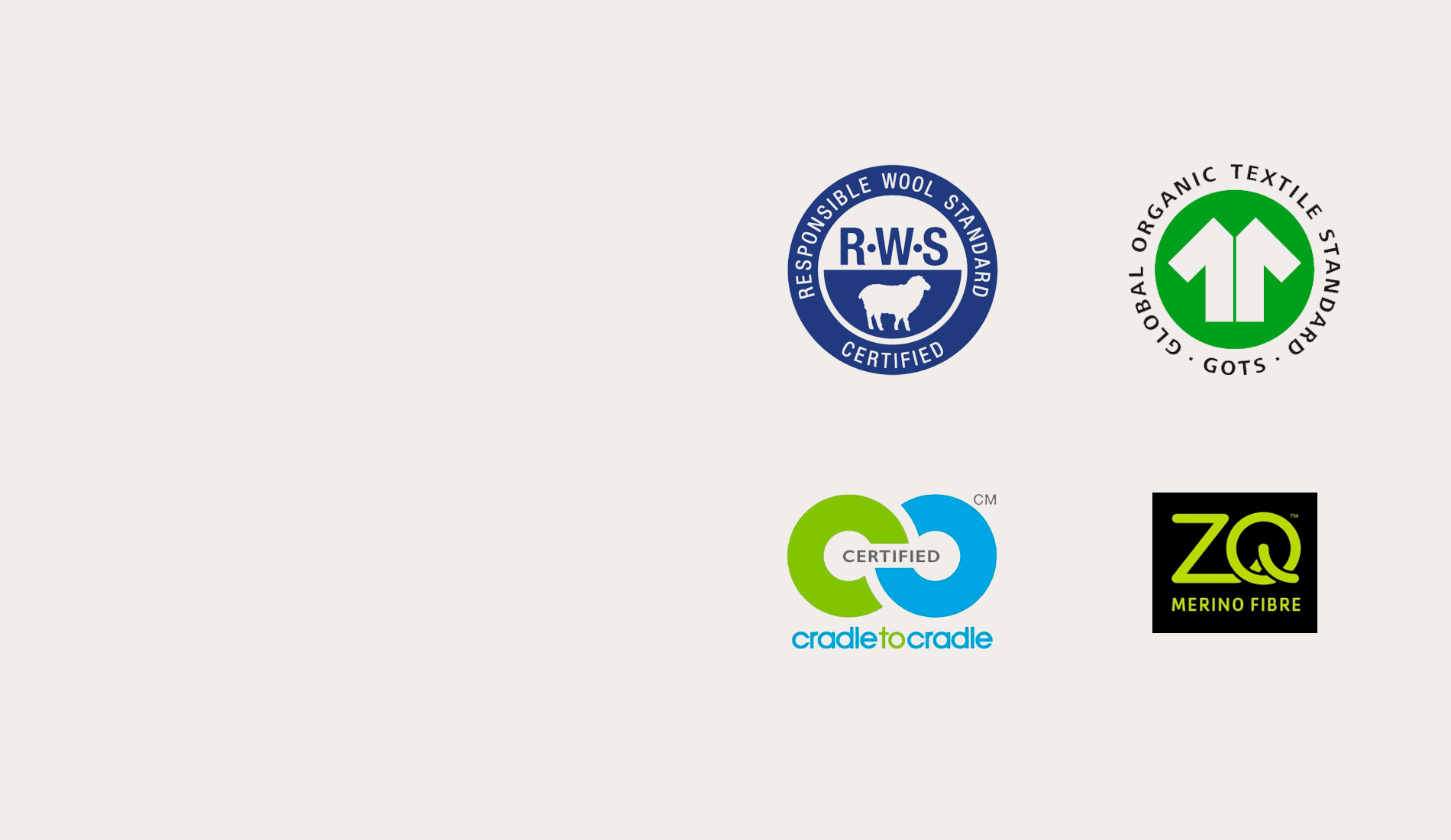
Leading certifications:
Responsible Wool Standard: Certifies animal welfare, best practice on farms, and traceability during processing.
GOTS: Ensures the organic status of wool and other textiles.
ZQ Merino: Ensures sustainability, animal welfare, and traceability of merino wool.
Cradle2Cradle: Assesses circularity according to five categories: material health, reuse, renewable energy and carbon, water, and social fairness
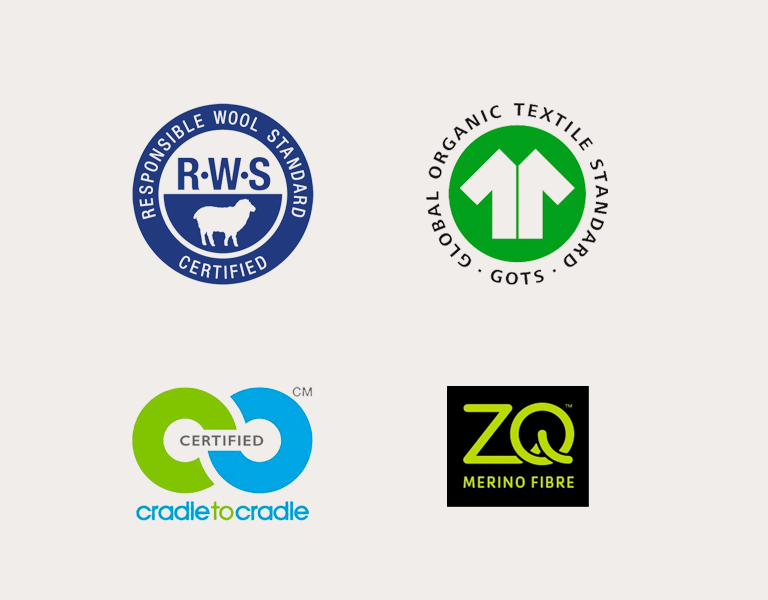
Leading certifications:
Responsible Wool Standard: Certifies animal welfare, best practice on farms, and traceability during processing.
GOTS: Ensures the organic status of wool and other textiles.
ZQ Merino: Ensures sustainability, animal welfare, and traceability of merino wool.
Cradle2Cradle: Assesses circularity according to five categories: material health, reuse, renewable energy and carbon, water, and social fairness
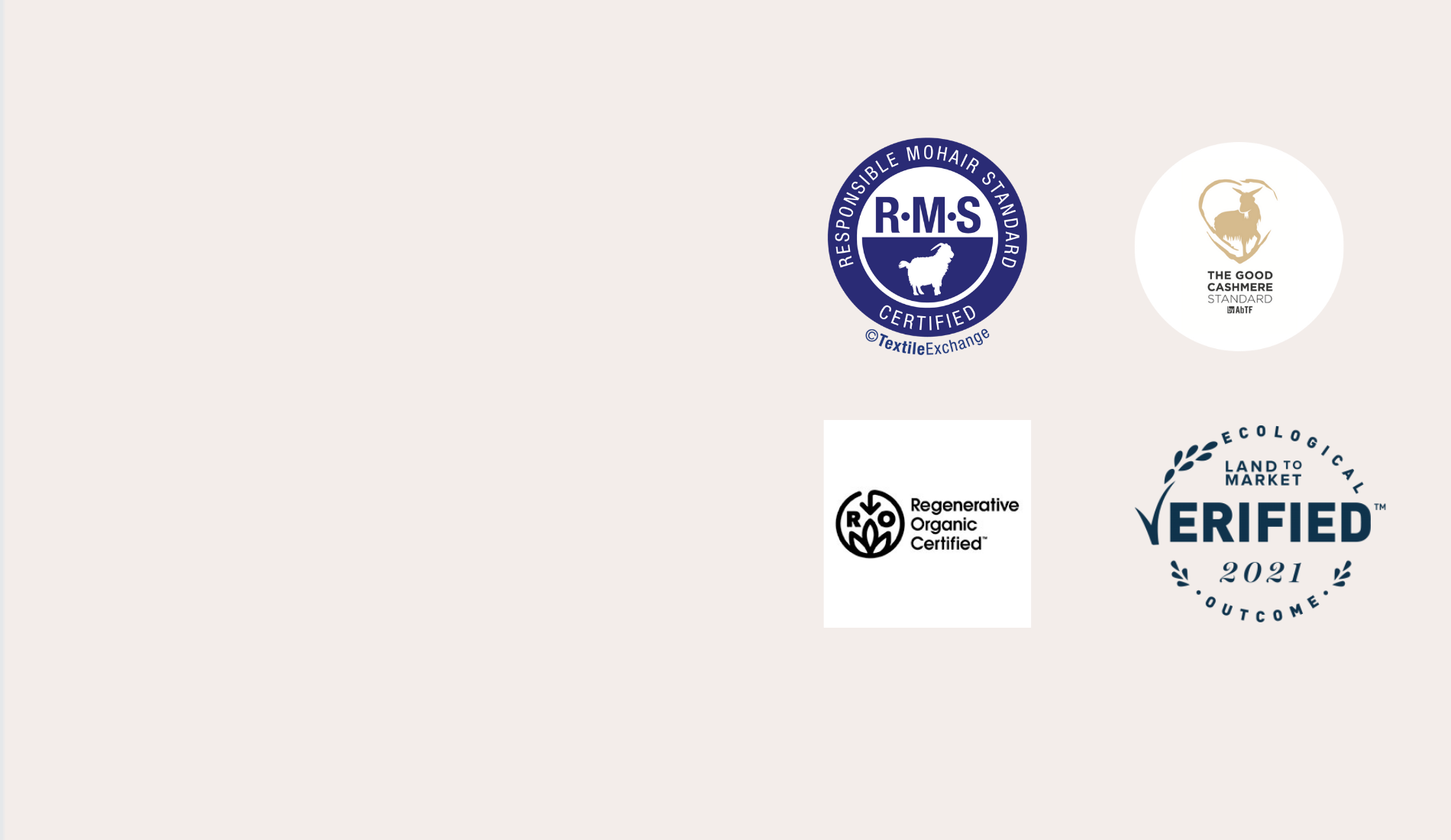
Responsible Mohair Standard: Addresses the welfare of goats and the land they graze on.
The Good Cashmere Standard: Aims to improve the welfare of goats, the lives of farmers and the environment they live in.
Regenerative Organic Certified: Awarded to farms and products that meet the highest standards in the world for soil health, animal welfare and fair work.
Ecological Outcome Verification by Savory Institute: Monitors the land health, giving a holistic look at both leading and lagging indicators.
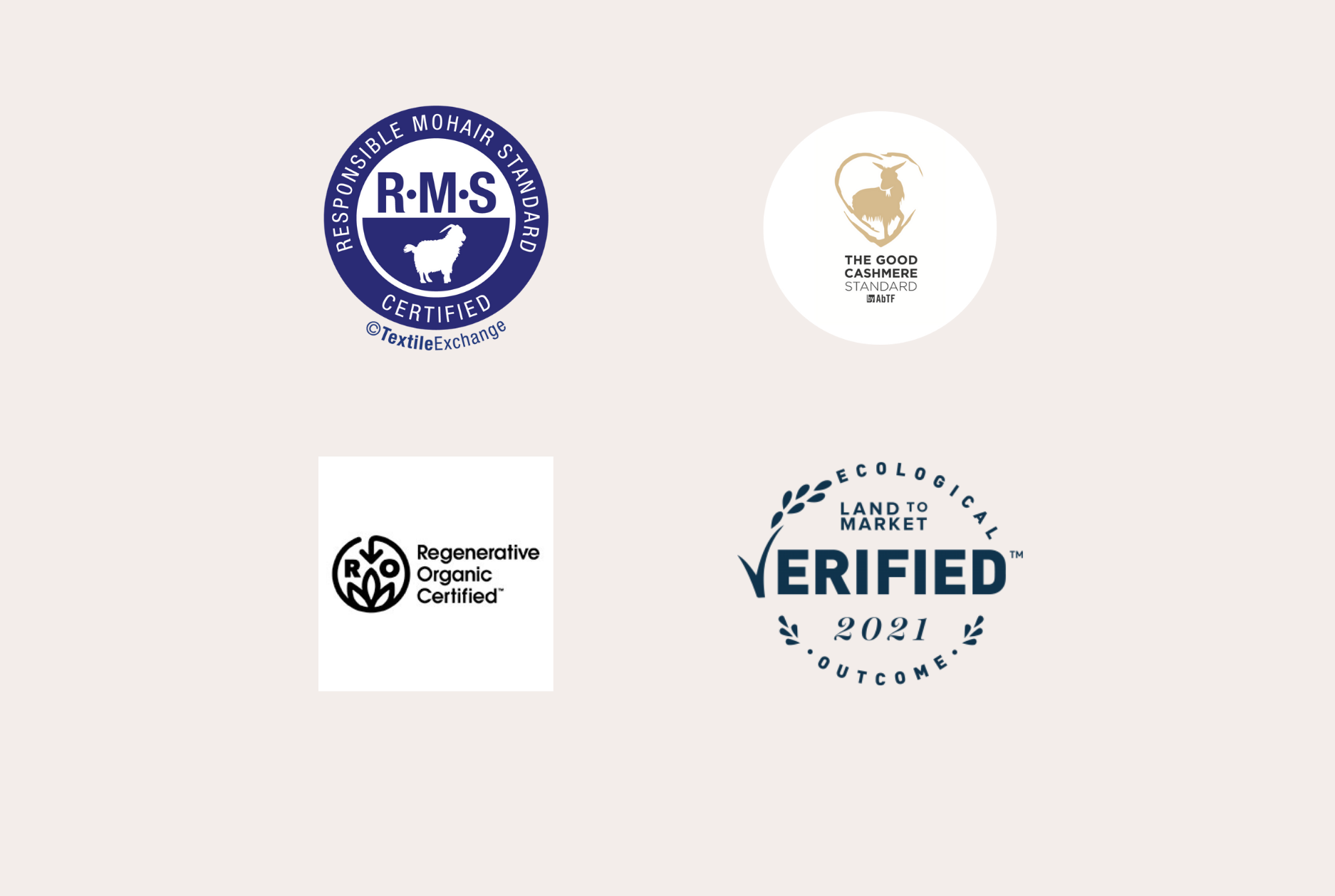
Responsible Mohair Standard: Addresses the welfare of goats and the land they graze on.
The Good Cashmere Standard: Aims to improve the welfare of goats, the lives of farmers and the environment they live in.
Regenerative Organic Certified: Awarded to farms and products that meet the highest standards in the world for soil health, animal welfare and fair work.
Ecological Outcome Verification by Savory Institute: Monitors the land health, giving a holistic look at both leading and lagging indicators.
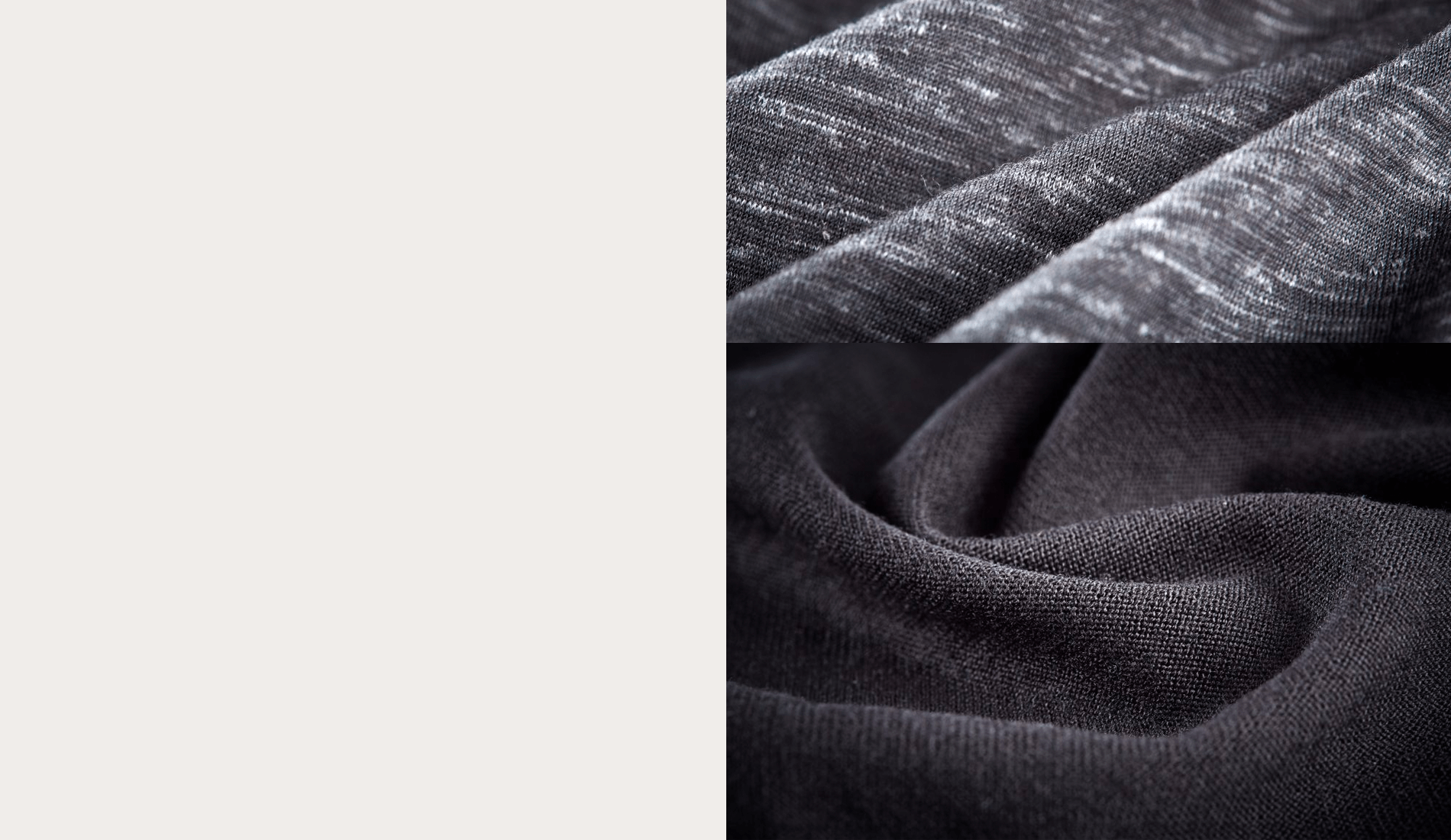
Taking responsible wool seriously
Italian wool producers, Suedwolle, are certified by both the Global Organic Textiles Standard (GOTS) and the Responsible Wool Standard.
With a 50+ year history, the company is firmly committed to best practices in wool production. In 2018, it signed the European Outdoor Group Sustainability Charter which outlines good corporate citizenship and responsibility.
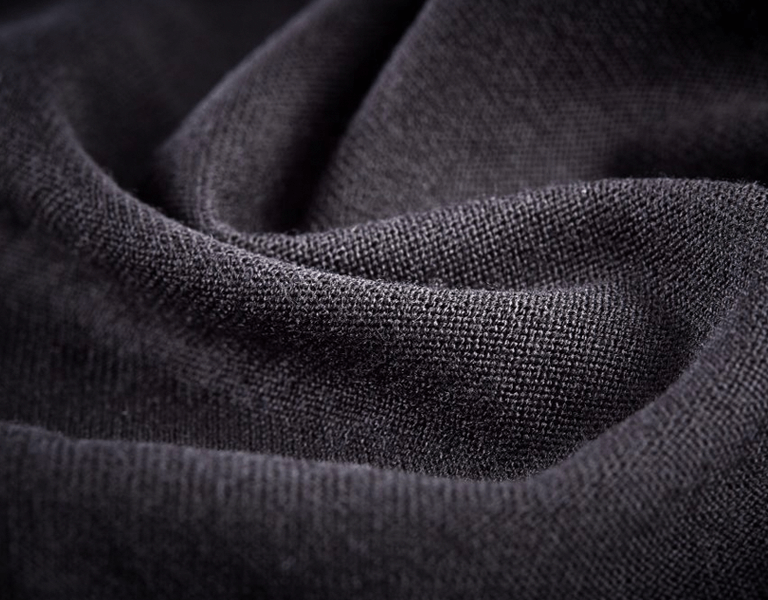
Taking responsible wool seriously
Italian wool producers, Suedwolle, are certified by both the Global Organic Textiles Standard (GOTS) and the Responsible Wool Standard.
With a 50+ year history, the company is firmly committed to best practices in wool production. In 2018, it signed the European Outdoor Group Sustainability Charter which outlines good corporate citizenship and responsibility.
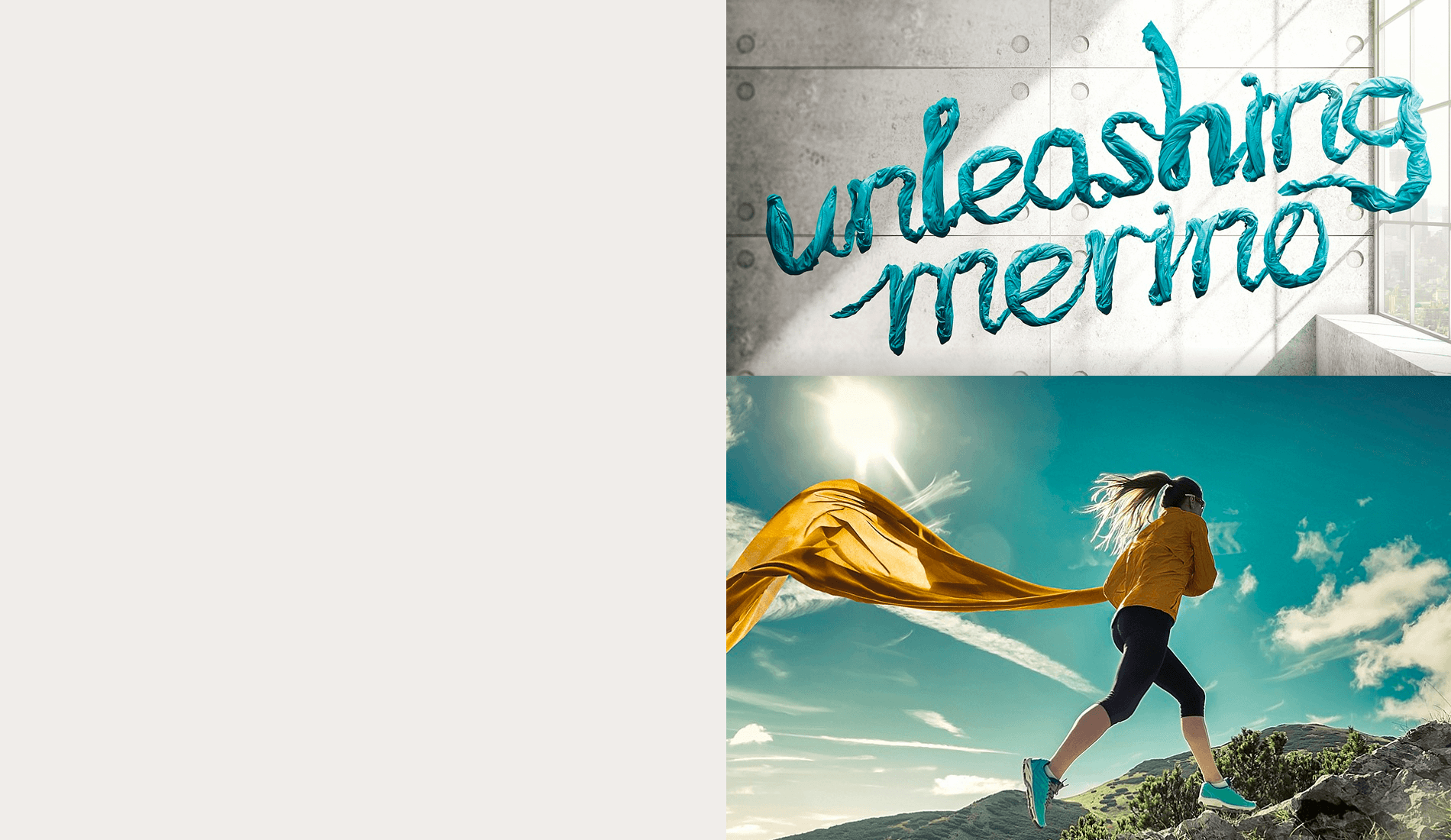
Unleashing merino's brilliance
Another 50+ year old company, Designer Textiles in New Zealand, embraces its Kiwi ingenuity to continuously innovate and challenge approaches to wool production.
Certified by ZQ and the Responsible Wool Standard, Oekotex, and Bluesign, Designer Textiles offer merino-based fabrics in a range of weights and blends to suit many different purposes - from everyday wear to activewear, or luxury knitwear.

Unleashing merino's brilliance
Another 50+ year old company, Designer Textiles in New Zealand, embraces its Kiwi ingenuity to continuously innovate and challenge approaches to wool production.
Certified by ZQ and the Responsible Wool Standard, Oekotex, and Bluesign, Designer Textiles offer merino-based fabrics in a range of weights and blends to suit many different purposes - from everyday wear to activewear, or luxury knitwear.
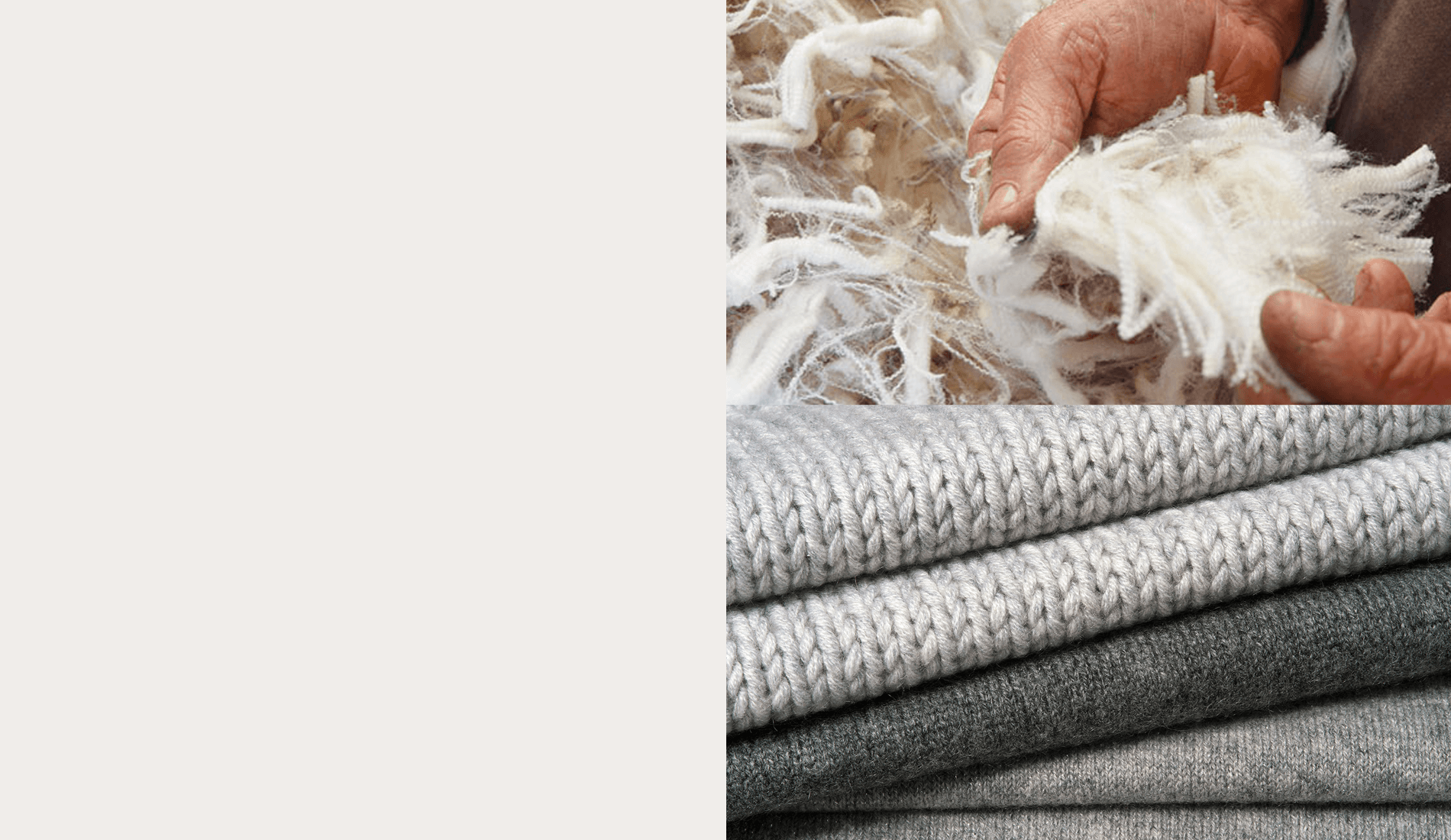
Italian heritage in a modern age
Founded in 1876, Botto Giuseppe is a heritage Italian yarn and fabric producer with a foot firmly in the future of wool production.
Over the last ten years, it has made a concerted effort to review and improve its environmental impact through more energy efficient production facilities and the ability to offer certified, sustainable woollen yarns and fabrics.
Its "Naturalis Fiber" eco collection includes Fairwool, Slowool, and Aroha - a range of mulesing-free merino, and merino cashmere blend fabrics. Its Slowool has achieved the Cradle2Cradle gold standard.
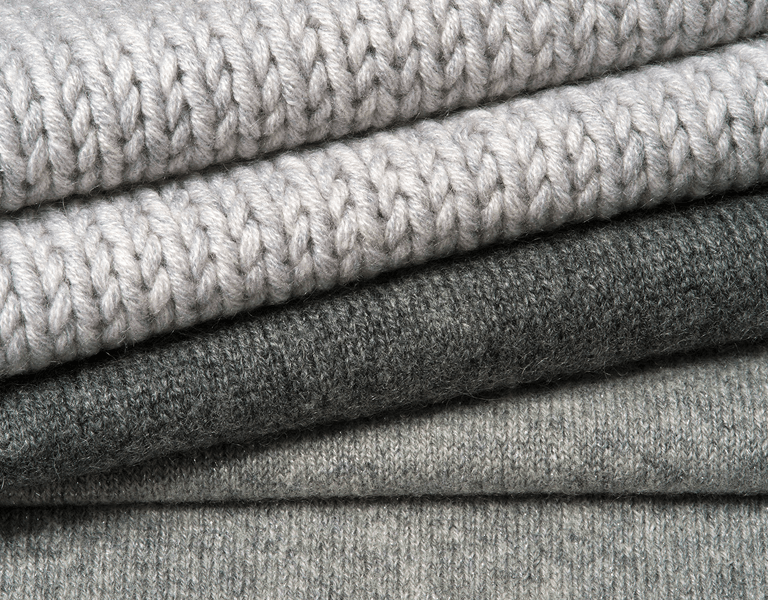
Italian heritage in a modern age
Founded in 1876, Botto Giuseppe is a heritage Italian yarn and fabric producer with a foot firmly in the future of wool production.
Over the last ten years, it has made a concerted effort to review and improve its environmental impact through more energy efficient production facilities and the ability to offer certified, sustainable woollen yarns and fabrics.
Its "Naturalis Fiber" eco collection includes Fairwool, Slowool, and Aroha - a range of mulesing-free merino, and merino cashmere blend fabrics. Its Slowool has achieved the Cradle2Cradle gold standard.
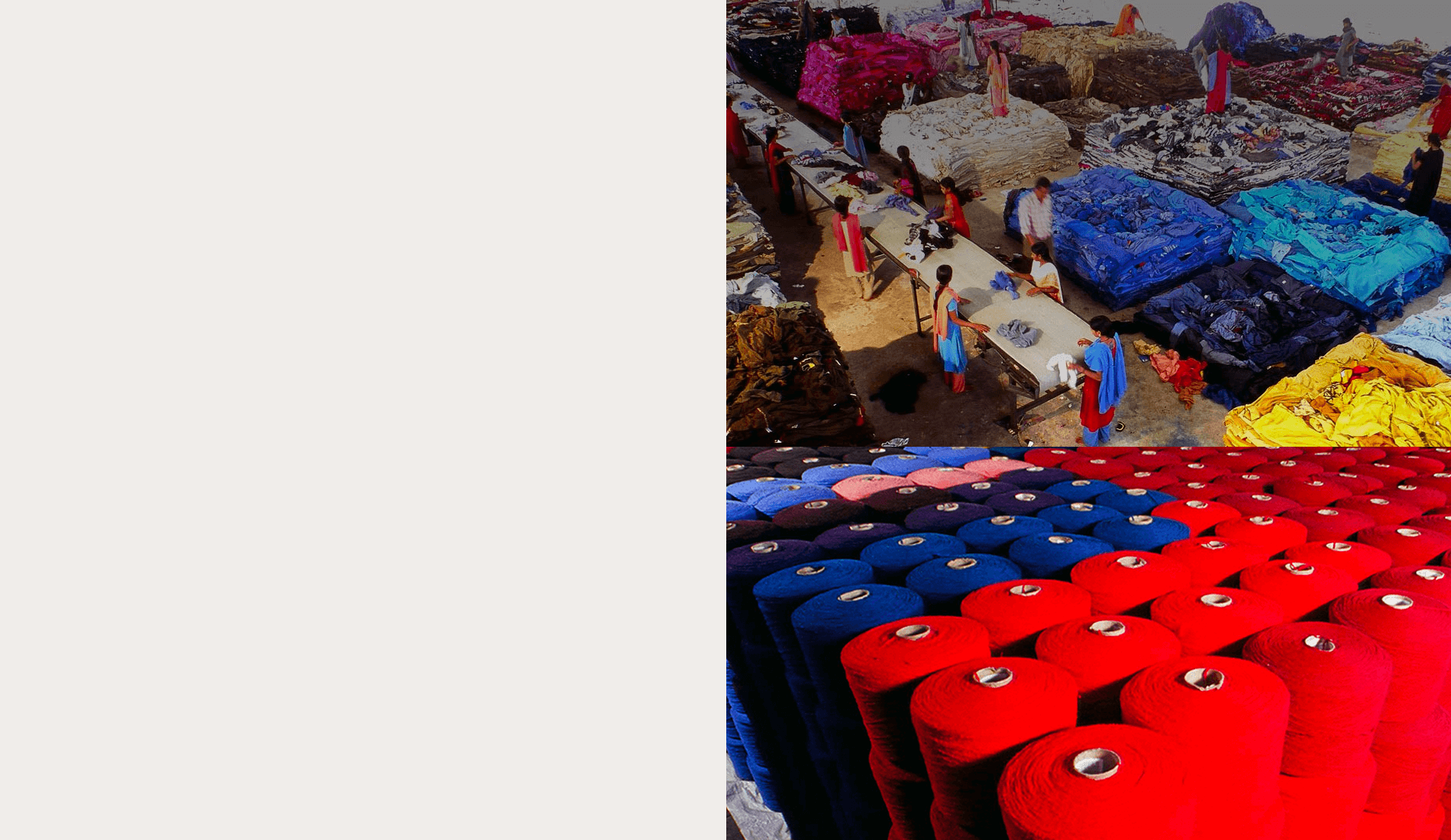
Recycled Wool - India
A large number of mills globally offer recycled wool yarn or recycled wool blends.
India’s Usha Yarns have been recycling for over a decade whilst one of India’s largest yarn mills Geetanjali Woollens (pictured) offers a wool/cotton range made from recycled clothing.
As the upcycled garments are already dyed, a wide range of colours can be offered without the often chemically-intensive dyeing process.
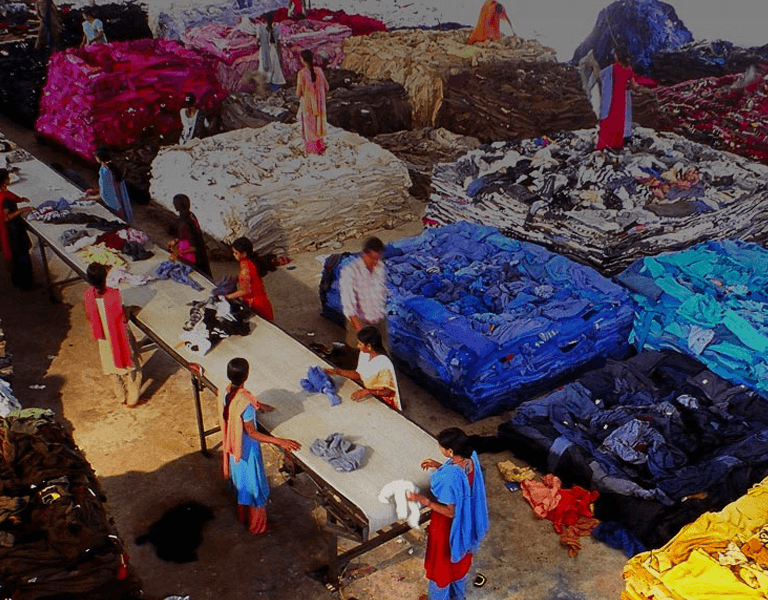
Recycled Wool - India
A large number of mills globally offer recycled wool yarn or recycled wool blends.
India’s Usha Yarns have been recycling for over a decade whilst one of India’s largest yarn mills Geetanjali Woollens (pictured) offers a wool/cotton range made from recycled clothing.
As the upcycled garments are already dyed, a wide range of colours can be offered without the often chemically-intensive dyeing process.
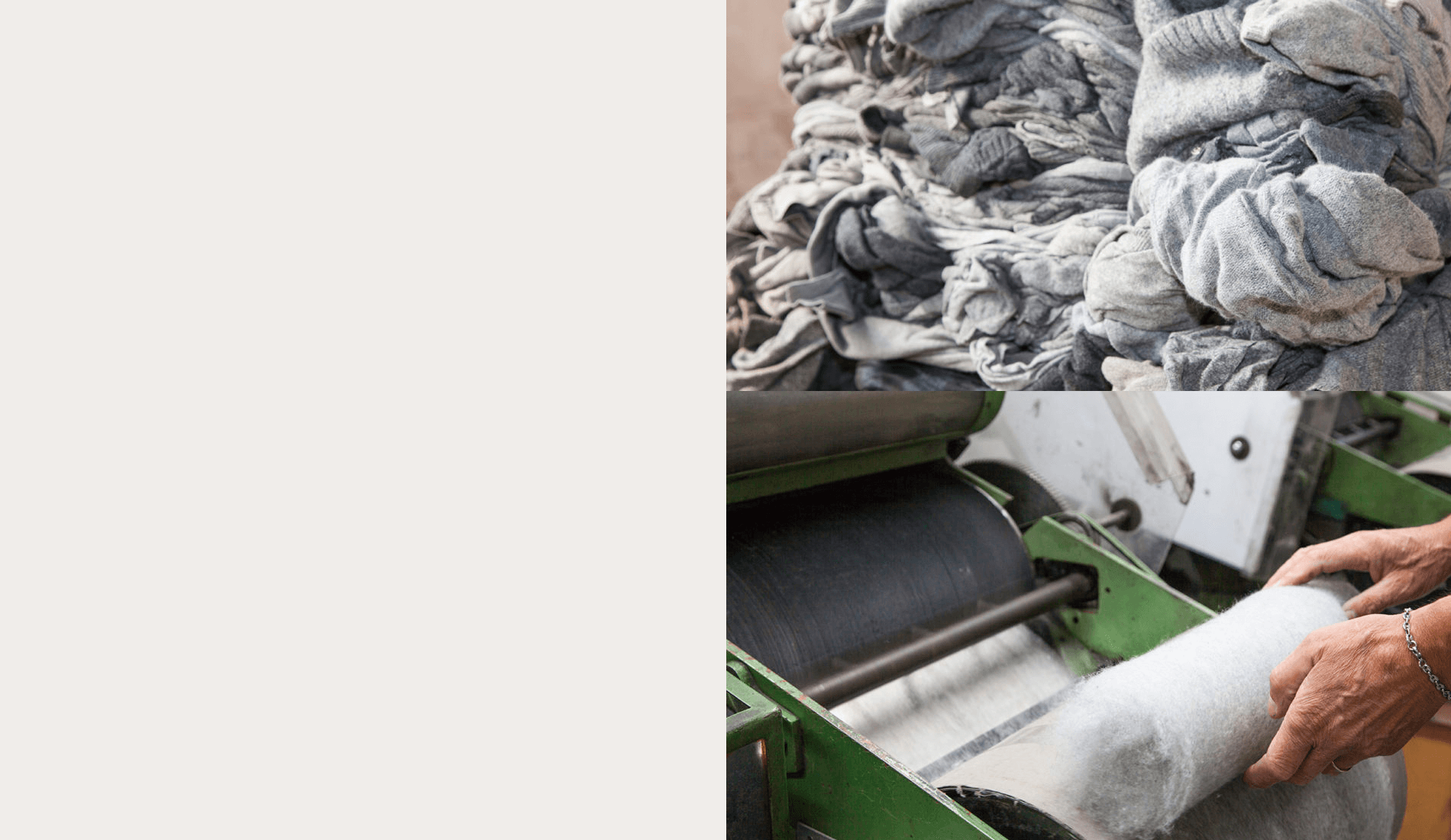
Recycled wool - Italy
Traditional Italian yarn producers are also utilising the huge amount of woollen textile waste to close the loop.
Family business, Manteco, offer a wide range of recycled wool, including GRS (Global Recycling Standard)-certified recycled cashmere, mohair, and alpaca.
Also GRS-certified is Com.i.stra - with its Regenius fabric and yarns made from textile by-products or used clothes without the use of dye.
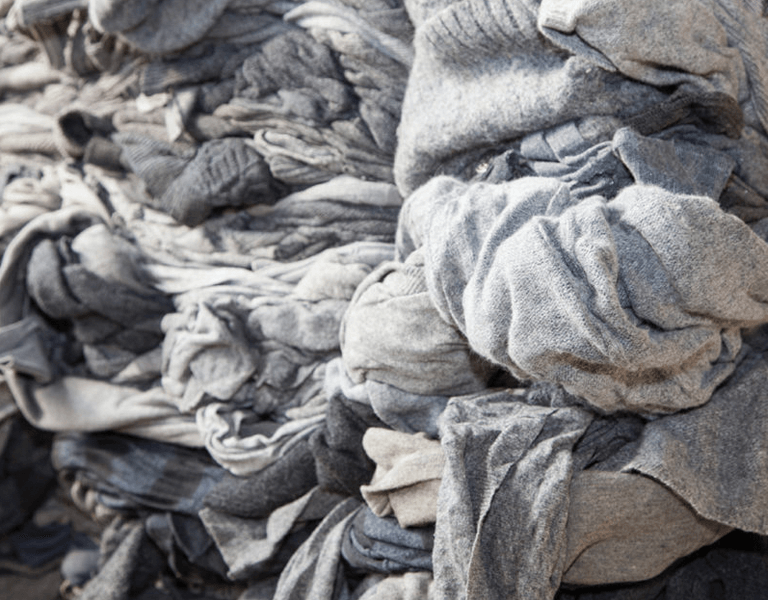
Recycled wool - Italy
Traditional Italian yarn producers are also utilising the huge amount of woollen textile waste to close the loop.
Family business, Manteco, offer a wide range of recycled wool, including GRS (Global Recycling Standard)-certified recycled cashmere, mohair, and alpaca.
Also GRS-certified is Com.i.stra - with its Regenius fabric and yarns made from textile by-products or used clothes without the use of dye.
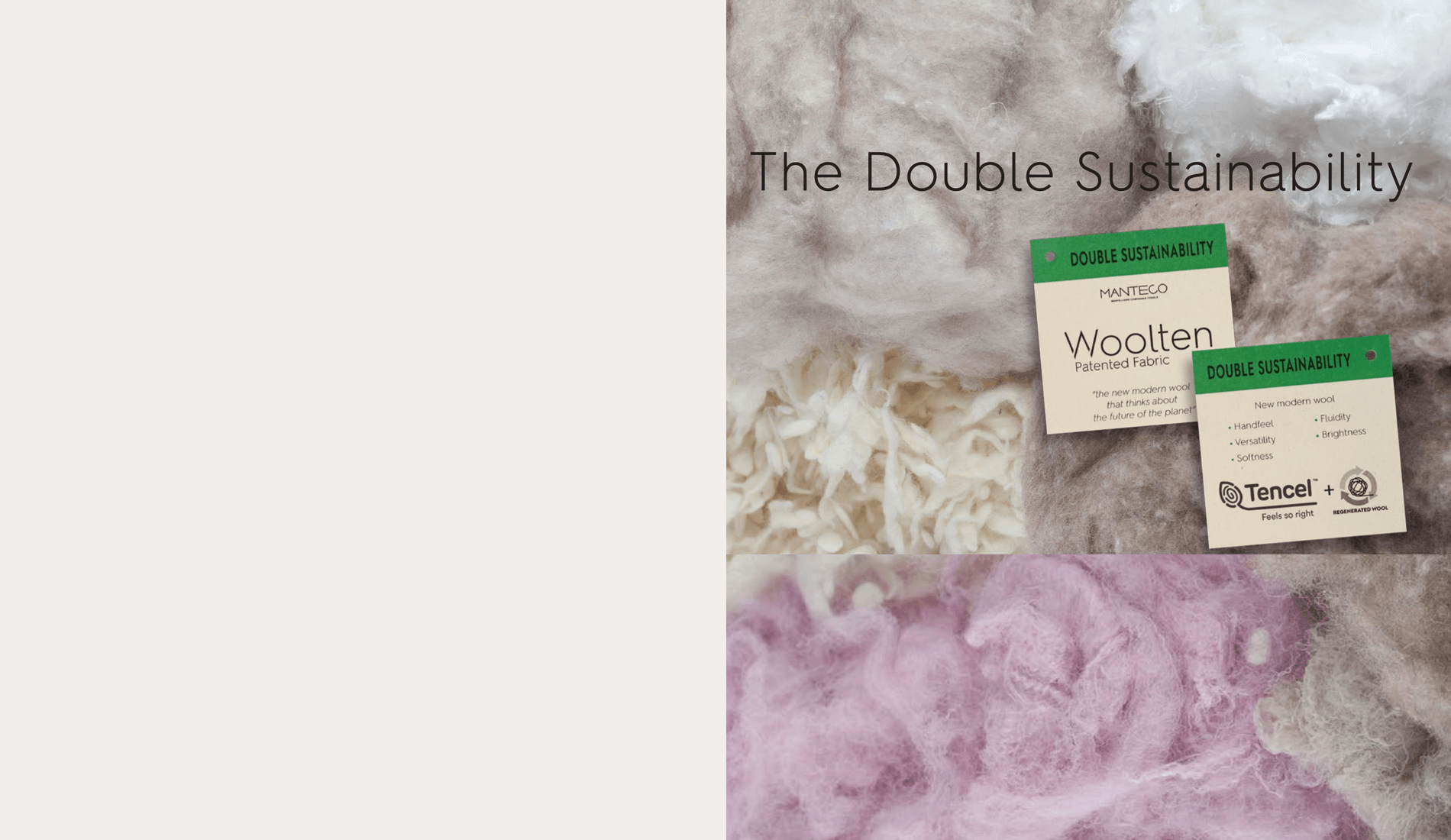
Silky soft blends
Instead of turning to synthetic fibres to achieve a more drapey finish, forward-thinking suppliers blend wool with more sustainable cellulosic fibres to produce fine, luxury fabrics and yarns.
TeWo from Varvaressos blends merino wool (already a relatively fine, soft fibre) with Lenzing Tencel, for a silky finished product fit for luxury purpose.
While Woolten from Manteco (pictured) blends recycled wool and Lenzing Tencel for a soft versatile handfeel.
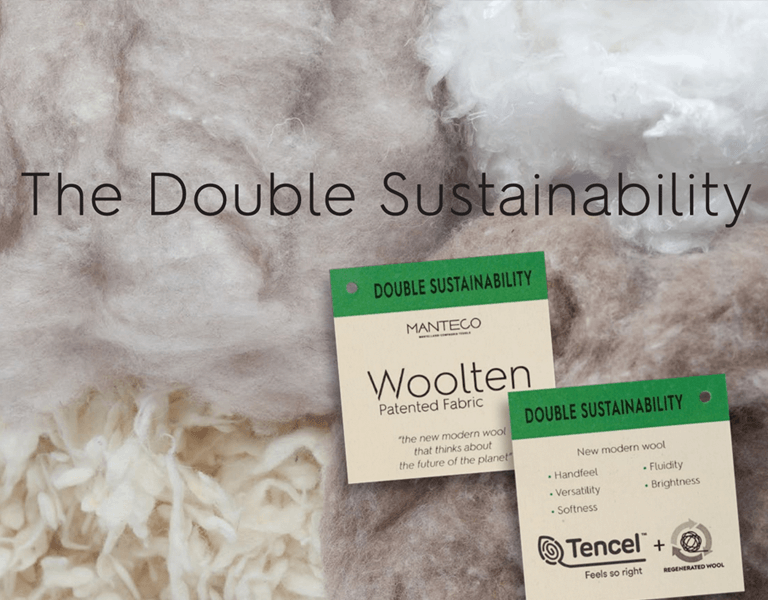
Silky soft blends
Instead of turning to synthetic fibres to achieve a more drapey finish, forward-thinking suppliers blend wool with more sustainable cellulosic fibres to produce fine, luxury fabrics and yarns.
TeWo from Varvaressos blends merino wool (already a relatively fine, soft fibre) with Lenzing Tencel, for a silky finished product fit for luxury purpose.
While Woolten from Manteco (pictured) blends recycled wool and Lenzing Tencel for a soft versatile handfeel.
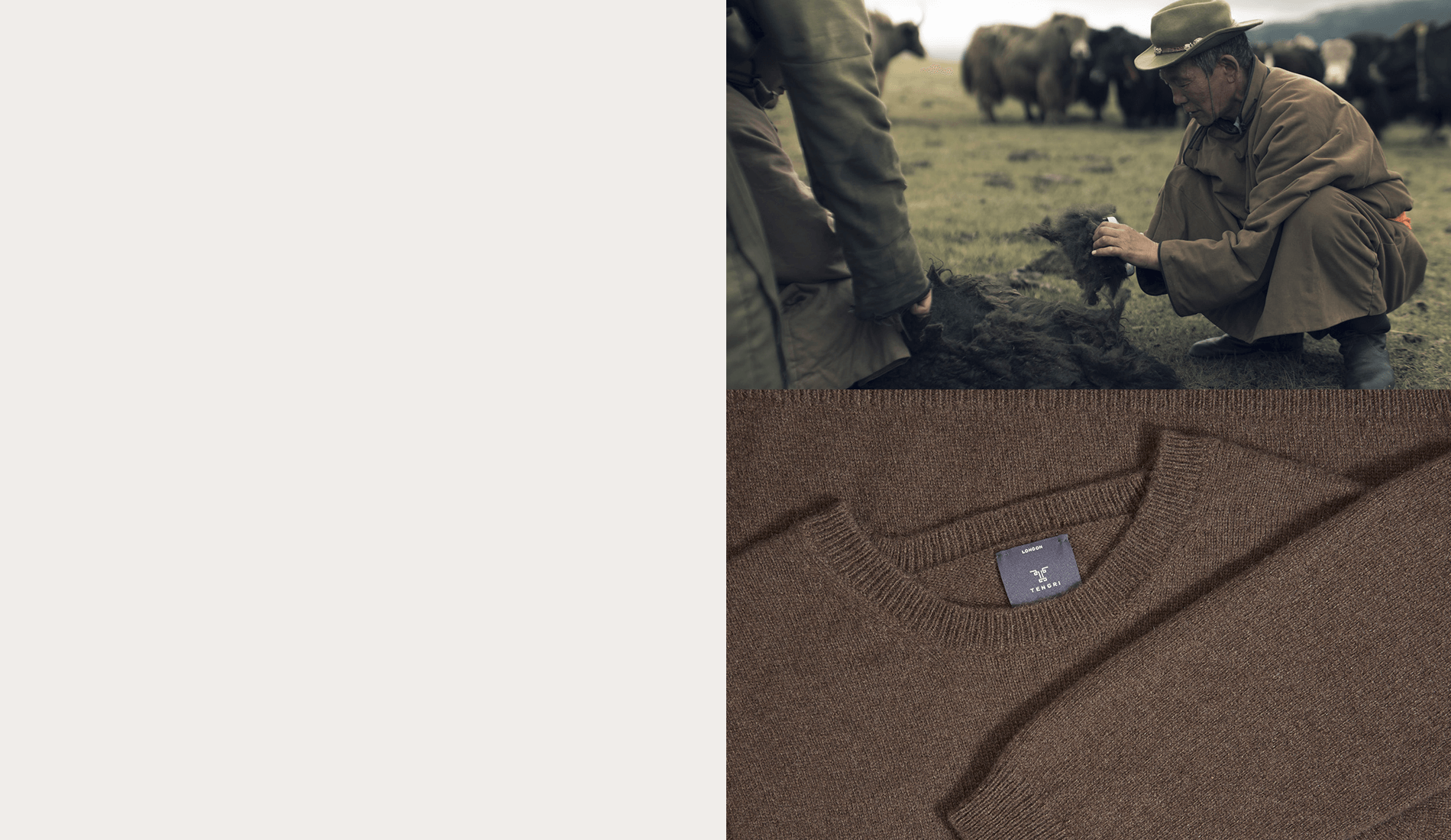
Yak wool - the new cashmere?
For those looking for a more sustainable alternative to cashmere, Yak wool is worth considering.
Tengri's Noble Yarns® & Fabrics celebrate an ancient tradition of harvesting wool from the Khangai yak in Mongolia.
Khangai fibres can be as soft as cashmere, warmer than merino wool, light and breathable, resistant to pilling, water and odours, hypoallergenic, and durable.
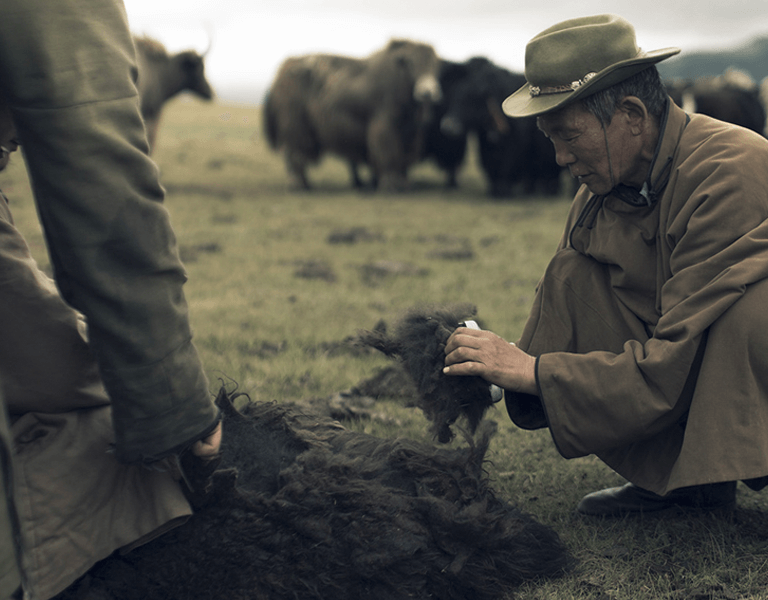
Yak wool - the new cashmere?
For those looking for a more sustainable alternative to cashmere, Yak wool is worth considering.
Tengri's Noble Yarns® & Fabrics celebrate an ancient tradition of harvesting wool from the Khangai yak in Mongolia.
Khangai fibres can be as soft as cashmere, warmer than merino wool, light and breathable, resistant to pilling, water and odours, hypoallergenic, and durable.
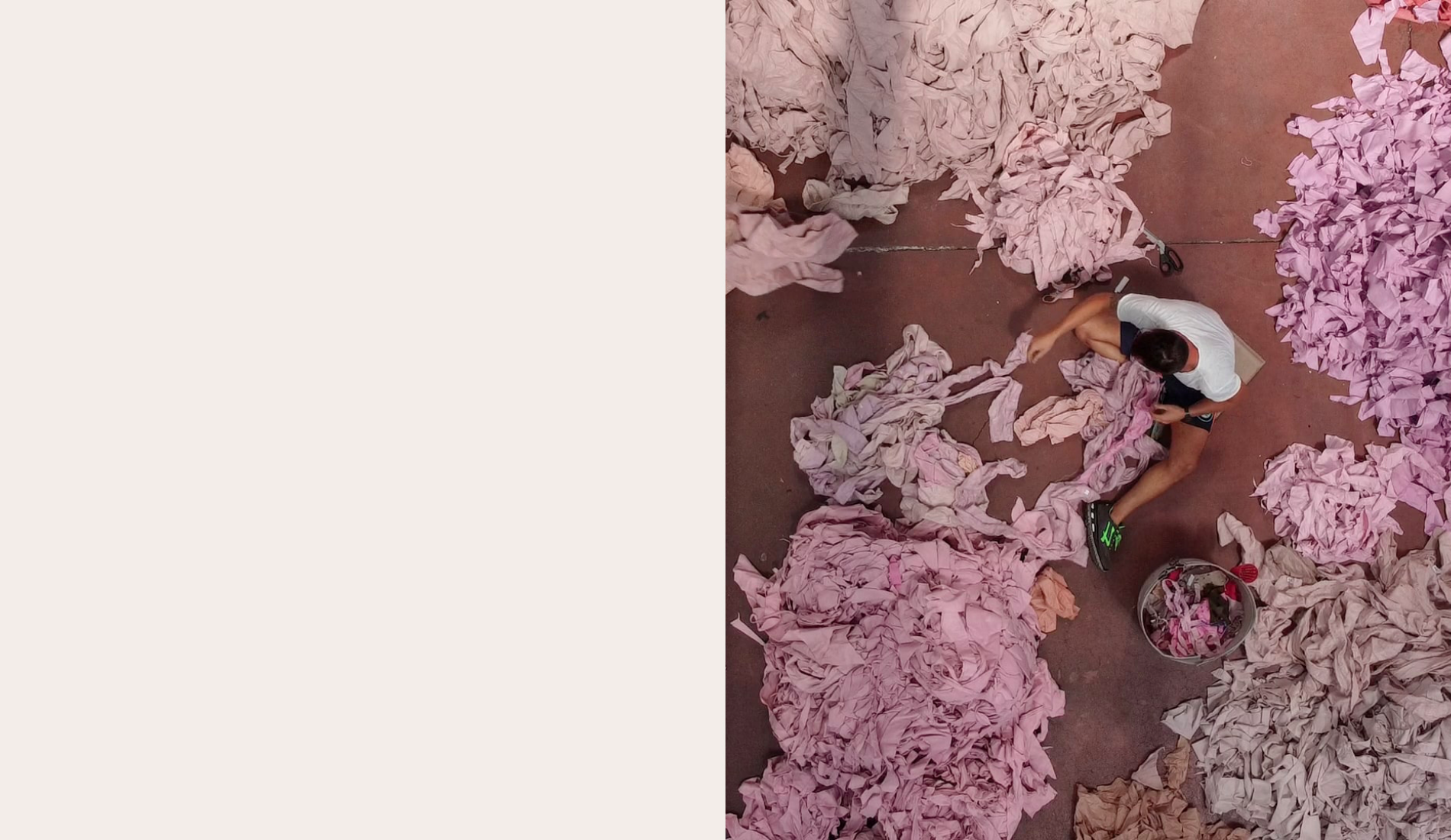
Re.Verso Yarns - reconstructed cashmere
Based in Italy Re-Verso™ uses recycled cashmere made from post-factory waste and represents an integrated, transparent and traceable supply chain.
Most Re.Verso™ yarns are not re-dyed, therefore the materials are sorted by hand into matching colour and fibres before being sent for testing to ensure their content and chemical safety. Not having to re-dye the yarns also saves on chemicals and water usage during production.
Re.Verso™ is also GRS (Global Recycled Standard) certified.
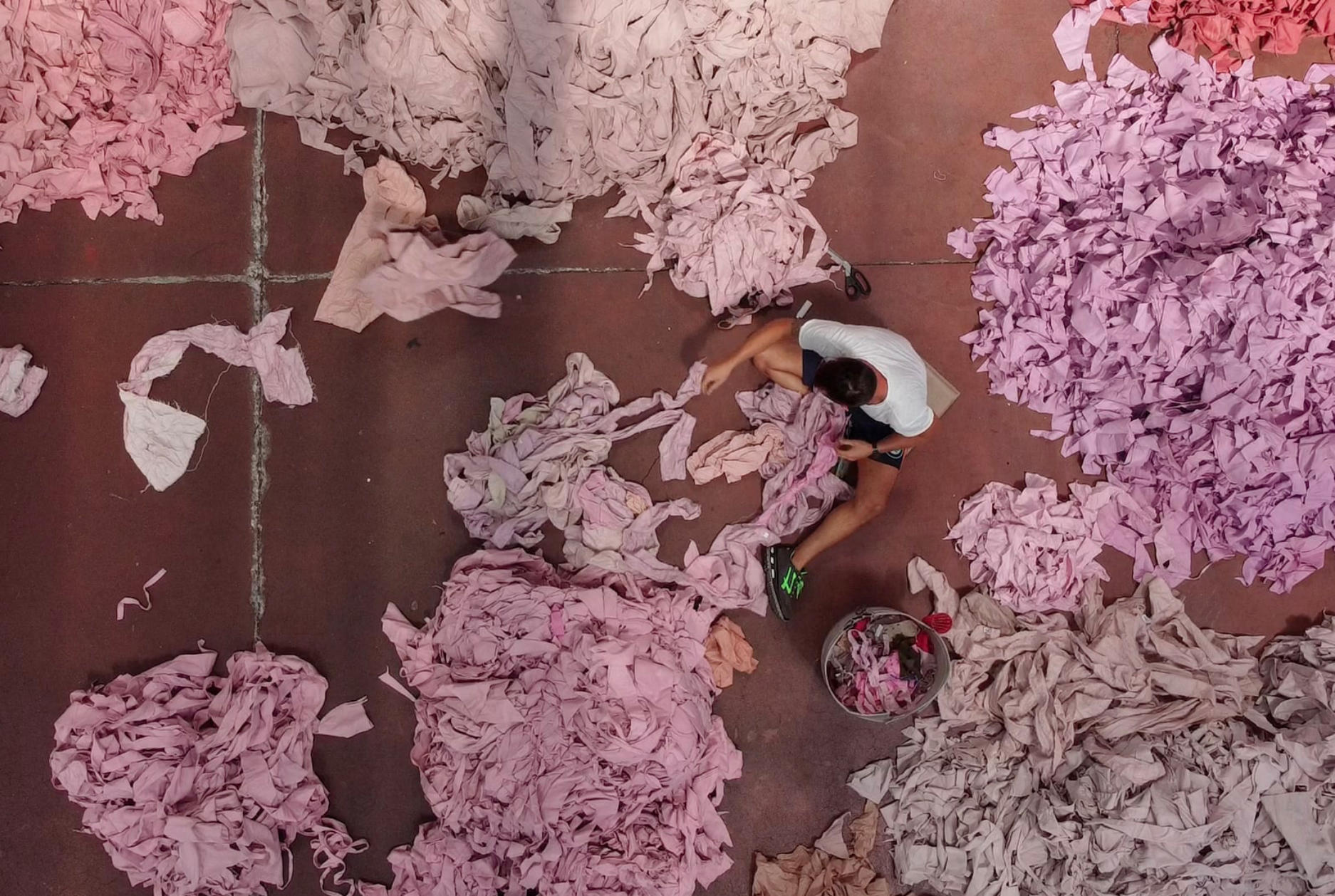
Re.Verso Yarns - reconstructed cashmere
Based in Italy Re-Verso™ uses recycled cashmere made from post-factory waste and represents an integrated, transparent and traceable supply chain.
Most Re.Verso™ yarns are not re-dyed, therefore the materials are sorted by hand into matching colour and fibres before being sent for testing to ensure their content and chemical safety. Not having to re-dye the yarns also saves on chemicals and water usage during production.
Re.Verso™ is also GRS (Global Recycled Standard) certified.
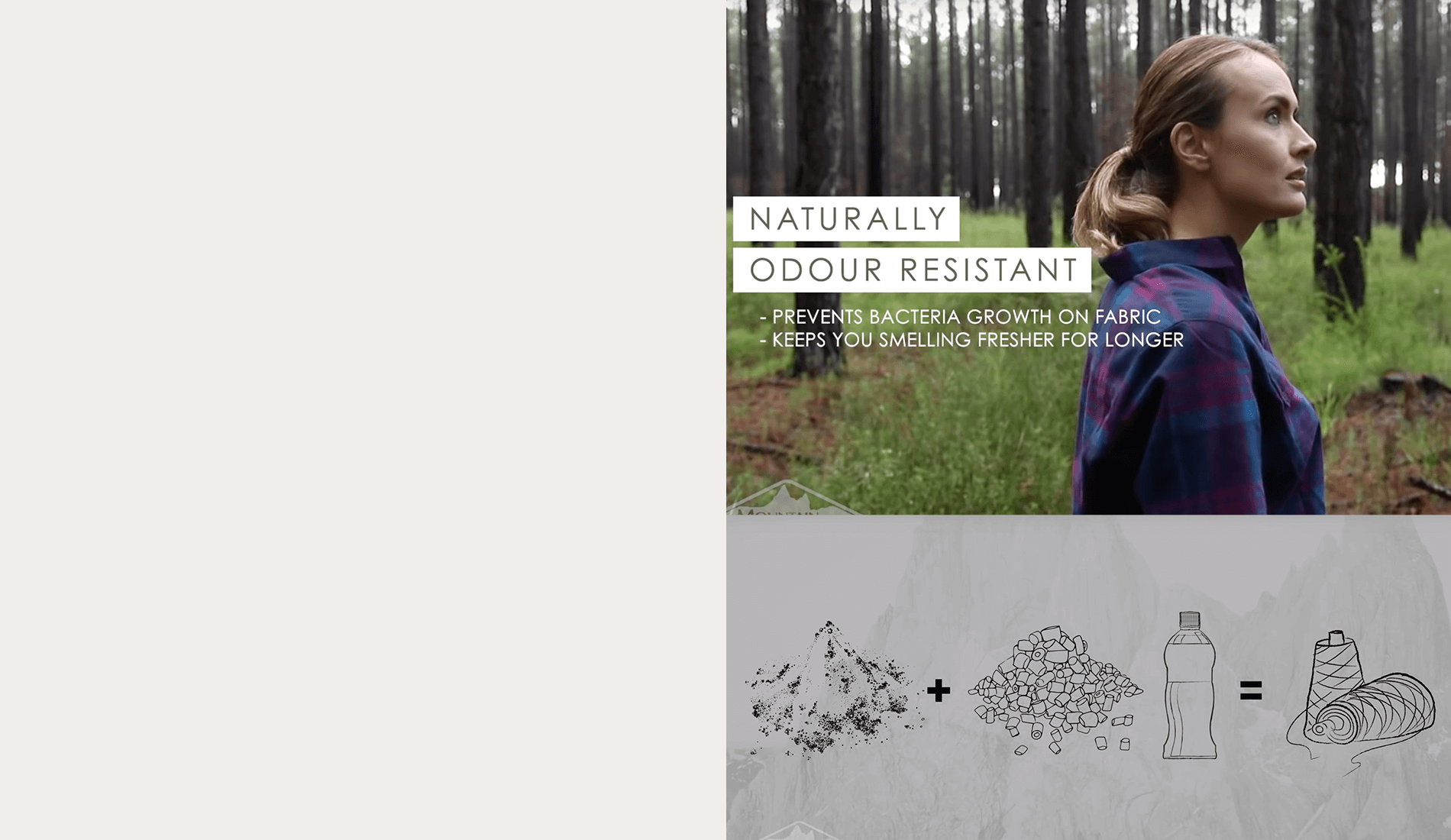
Synthetic-free vegan wool
Wool from the sea
Australian outdoorwear company, Mountain Designs, has been working with a unique fabric called Seawool for the past two years.
Produced by crushing recycled oyster shells and blending with recycled PET pellets, the finished product is insulating, anti-bacterial, quick-drying, and soft and comfortable - great for outdoor clothing.
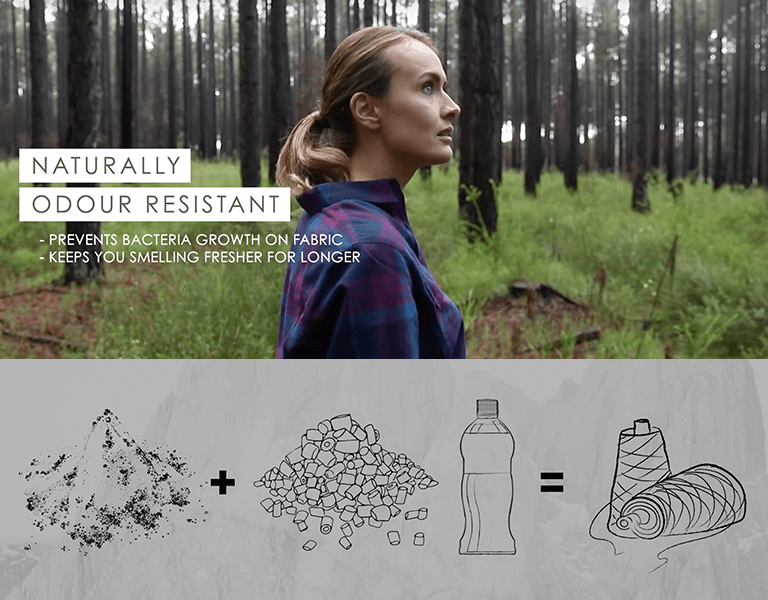
Synthetic-free vegan wool
Wool from the sea
Australian outdoorwear company, Mountain Designs, has been working with a unique fabric called Seawool for the past two years.
Produced by crushing recycled oyster shells and blending with recycled PET pellets, the finished product is insulating, anti-bacterial, quick-drying, and soft and comfortable - great for outdoor clothing.
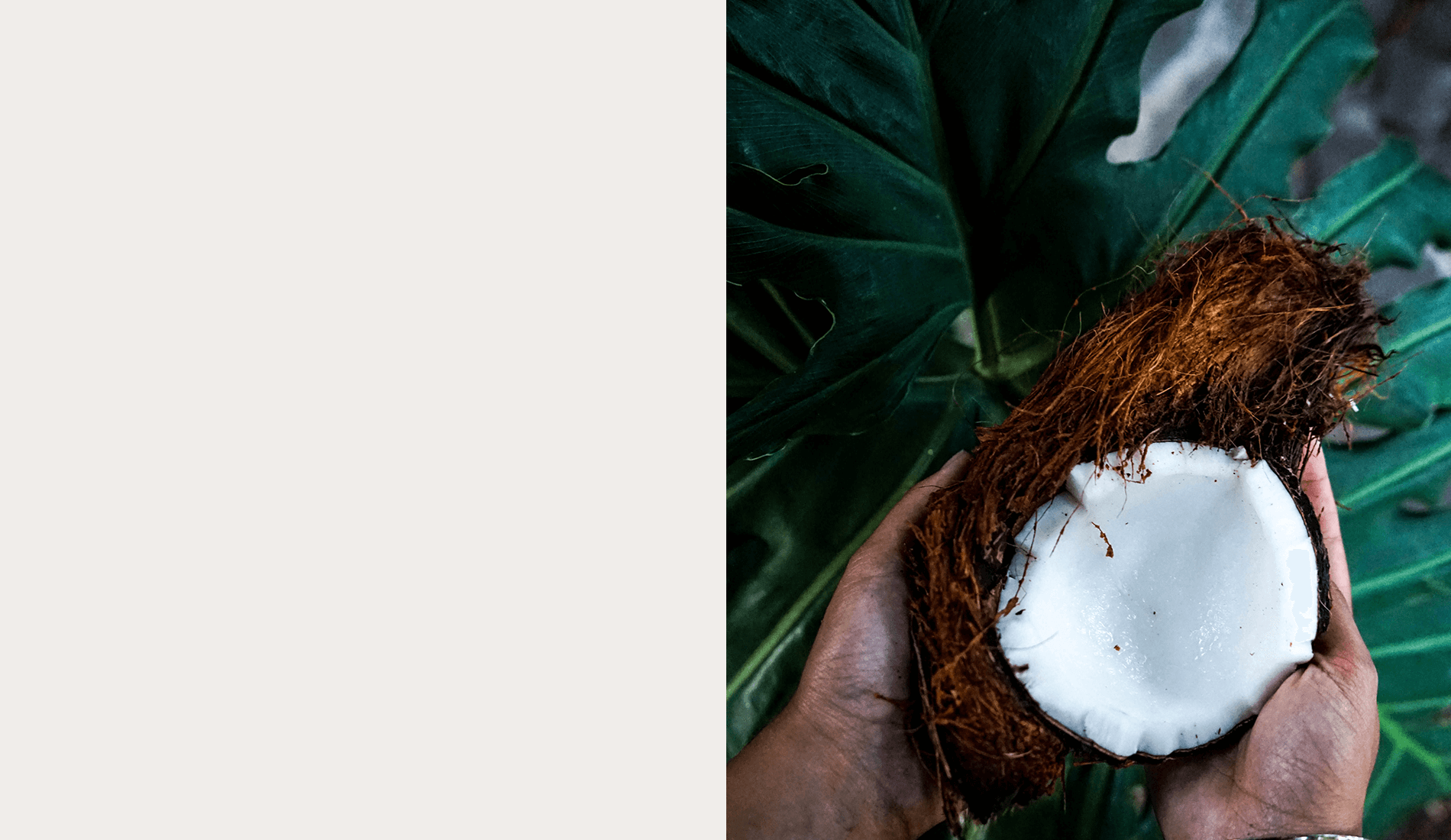
Vegan wool, PETA-approved
The winner of the first PETA Prize for Animal-Free Wool in partnership with Stella McCartney (2018), Woocoa, is a vegan wool made from hemp and coconut fibres treated with enzymes extracted from the oyster mushroom.
The competition winners, a group of innovative design students from the Universidad de los Andes in Bogota, Colombia, have been partnered with leading biotech professionals to help them develop their product and get it market-ready.
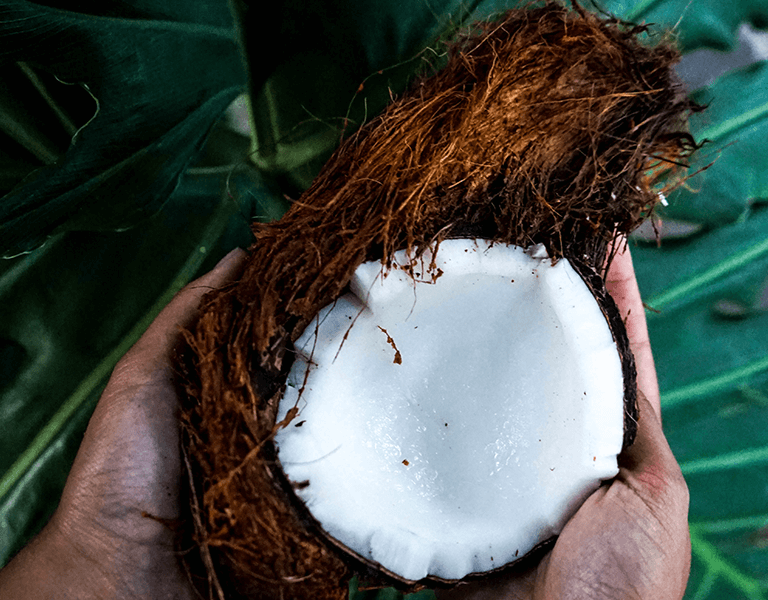
Vegan wool, PETA-approved
The winner of the first PETA Prize for Animal-Free Wool in partnership with Stella McCartney (2018), Woocoa, is a vegan wool made from hemp and coconut fibres treated with enzymes extracted from the oyster mushroom.
The competition winners, a group of innovative design students from the Universidad de los Andes in Bogota, Colombia, have been partnered with leading biotech professionals to help them develop their product and get it market-ready.
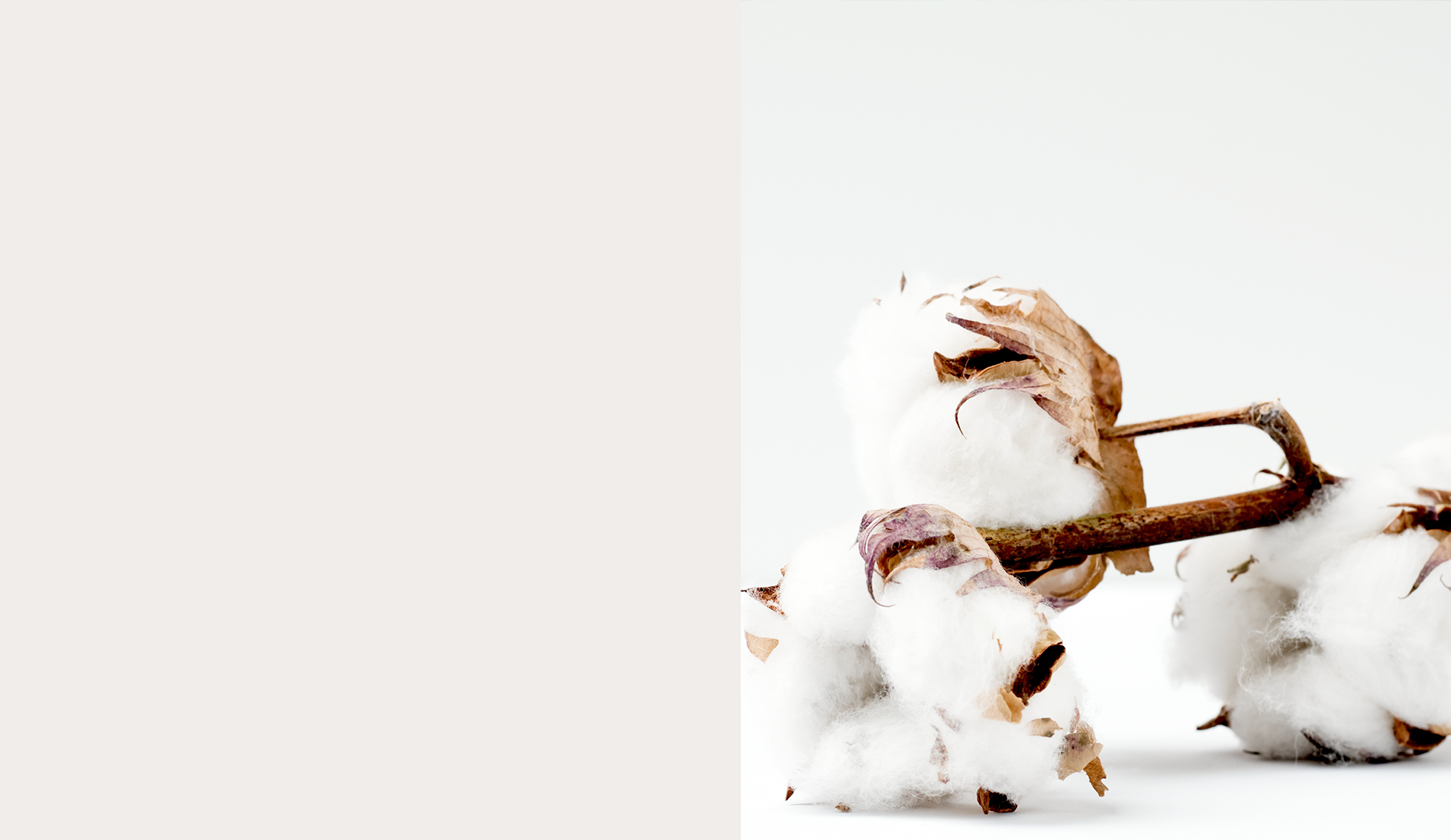
Wool from cotton?
Japanese fibre innovators, Kurabo, have developed a hollow cotton yarn that traps air, making it warmer and potentially a good wool substitute.
There may still be sustainability issues regarding the impact of the cotton, however for those who wish to avoid animal products this offers another sustainable alternative to synthetics.
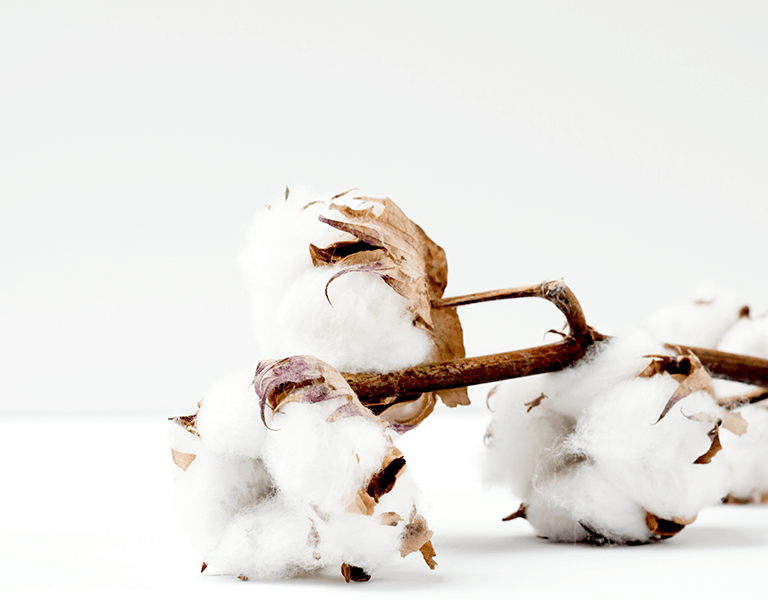
Wool from cotton?
Japanese fibre innovators, Kurabo, have developed a hollow cotton yarn that traps air, making it warmer and potentially a good wool substitute.
There may still be sustainability issues regarding the impact of the cotton, however for those who wish to avoid animal products this offers another sustainable alternative to synthetics.


First published 13.12.2018 - Updated 17.12.2021
Related Reading
Sign up to connect with 50,000+ other sustainability-minded professionals and access over 300 pieces of actionable intelligence.
Common Objective is a global sourcing and information network that enables you to succeed in sustainable fashion business.
